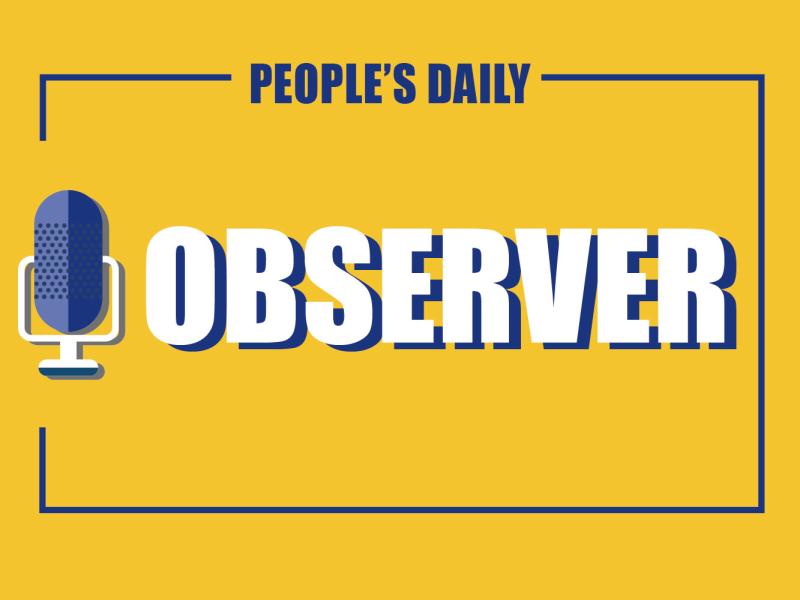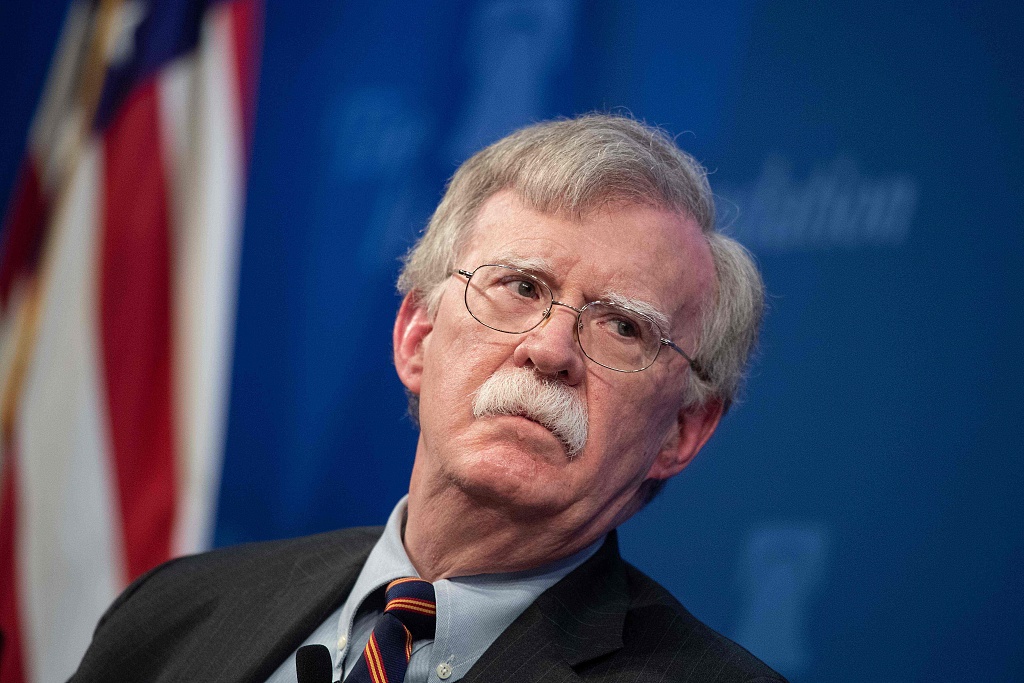
At the National Conservatism conference on Tuesday, US National Security Adviser John Bolton argued that the US-China conflict “has elements of Samuel Huntington’s clash of civilizations.”
It’s not the first time an official from the Trump administration viewed world politics through the civilizational lens by suggesting that China poses a threat to the US as it differs from Western countries, and its people are not white.
In May, Kiron Skinner, director of policy planning at the State Department, portrayed the competition with China as “a fight with a really different civilization, and a different ideology.” “I think it’s also striking that it’s the first time that we will have a great power competitor that is not Caucasian,” she added.

US National Security Advisor John Bolton. (File photo: VCG)
Bolton has been a fixture in US foreign policy over the past four decades, and has spent most of the time arguing for the most hawkish positions on any issue put in front of him. He has vowed a tough approach to China, saying China’s “behavior needs to be adjusted in the trade area, in the international, military and political areas.”
It’s very dangerous to view China-US relations through the lens of Huntington’s “clash of civilizations,” reflecting the notion of white supremacy, which hampers bilateral ties between the two major powers, and poses a threat to the peace and security of the globalized world.
In March 2018, Trump decided to hire Bolton, which sparked anxiety and worries around the world. Even Trump once reportedly joked with former National Security Advisor HR McMaster that Bolton was “going to get us into a war.”
Netizens on Twitter also voiced their opinions. Some say, “Bolton’s talk of a ‘clash of civilizations’ is just the paradigm through which he experiences everything.” He considers the two countries two different civilizations, framing bilateral ties between the two powers in terms of skin color, which is a racist point of view.
It’s wrong to view civilizations as monolithic or even entirely distinct from one another. On the contrary, civilizations are diverse, permeable, and overlapping; they should be pictured as coinciding constellations of different ideas, values, systems and institutions.
There is no doubt that competition exists between China and the US in multiple sectors, but the experience of the past several decades showed that cooperation can lead to mutual benefits.
In his Tuesday address, Bolton also made a request to the US government to impede Silicon Valley’s investments in China. He said the US was entitled to protect itself from China’s view of how society functions and the imposition of that view onto American society.
Technology developments go beyond national boundaries. It’s due to the cooperation and transfer in the high-tech sector that we can fully enjoy a modern society with big data, AI, mobile payment, 5G and so on. As China is a new hive of new technologies, there’s no doubt that Google, Apple, Facebook and other tech giants would like to strive for greater market share there. Barring Silicon Valley tech giants from working with China simply because the country has “a different view of how society functions” is pointless and tends to be biased.
China has always advocated an inclusive stance toward civilizations and there is no exception for China-US relations. Viewing China-US relations as a “clash of civilizations” is extremely dangerous, and goes against the interests of both countries.


